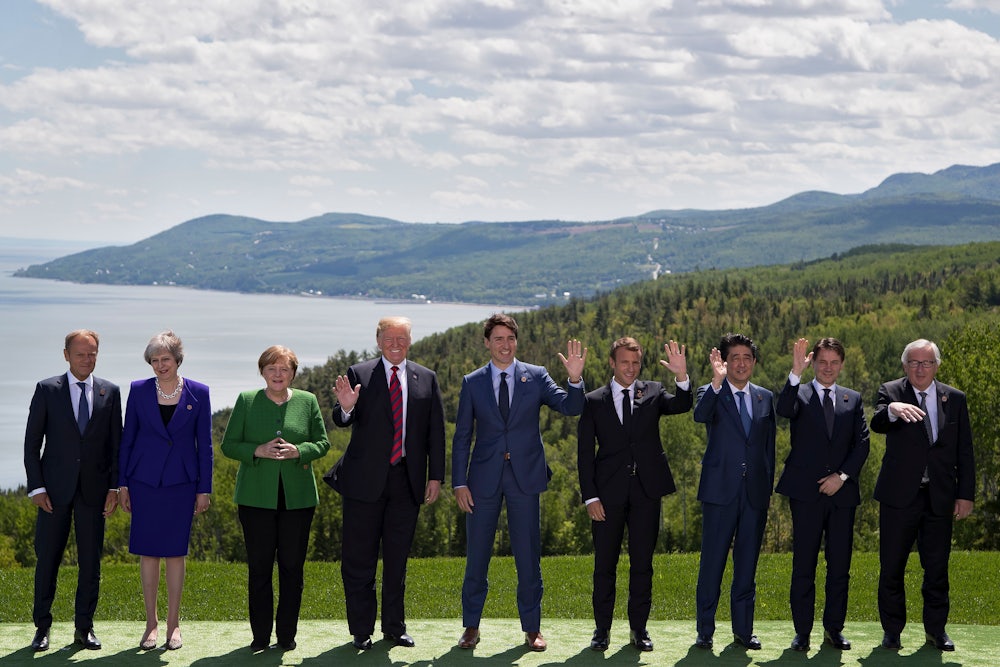On July 23, a distinguished group of international relations scholars published an ad in The New York Times arguing that President Donald Trump was threatening an “international order” formed after World War II. The scholars argued that this international order “provides important benefits to the United States as well as other countries. The United Nations, NATO, the World Trade Organization, the European Union and other postwar institutions all help to provide economic stability and international security, contributing to unprecedented levels of prosperity and the longest period in modern history without war between major powers.”
Writing in Foreign Policy, Stephen Walt, professor of international affairs at Harvard University’s John F. Kennedy School of Government, says he was tempted to sign the statement as well, since he believes Trump is damaging America’s standing in the world, but he decided he didn’t share the nostalgic vision the past that that the statement articulated.
“It was never a global order, and there was an awful lot of illiberal behavior even by countries and leaders who constantly proclaimed liberal values,” Walt notes. “The United States propped up plenty of authoritarian rulers throughout the Cold War (and has continued to do so ever since), and Washington didn’t hesitate to break the rules of the liberal order whenever it saw fit, as it did when it dismantled the Bretton Woods system in 1971 and when it invaded Iraq in 2003.” Further, organizations like NATO don’t necessarily promote order but can be seen as “a disruptive force” in recent years “mostly by pursuing an open-ended and ill-conceived eastward expansion.”
Walt makes a compelling case that has a value beyond the critique of the original statement. It’s true that challenging Trump shouldn’t be based on a hazy yearning for an idealized past. The international order is not something that needs to be re-created but rather built anew, with fresh institutions and new relationships. Arguably, the power vacuum Trump is creating could be filled by other democracies who might be better suited to deal with regional problems. As Walt observes, “defending the old order in this way is both a losing proposition politically and a distraction from the important task of figuring out what a new order should look like.”
